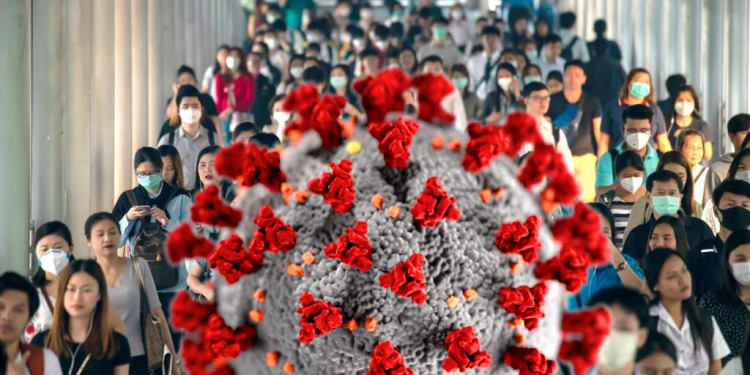The FINANCIAL — As the COVID-19 situation evolves, the World Tourism Organization (UNWTO) observes that full or partial travel restrictions have been – and continue to be – introduced across the world. These decisions are made with public health as the primary concern. This pandemic affects every level of society and we stand by those affected in these times. The impact of the pandemic on already slowing economies has made tourism particularly vulnerable, becoming the hardest hit sector so far. With 80% of the sector made up of small and medium-sized enterprises, millions of livelihoods in the world are left vulnerable, ZURAB POLOLIKASHVILI, SECRETARY-GENERAL, WORLD TOURISM ORGANIZATION.
The tourism sector is currently one of the hardest-hit by the outbreak of COVID-19, with impacts on both travel supply and demand. This represents an added downside risk in the context of a weaker world economy, geopolitical, social and trade tensions, as well as uneven performance among major outbound travel markets.
Considering the evolving nature of the situation, it is too early to estimate the full impact of the COVID-19 on international tourism. For its initial assessment, UNWTO takes the SARS scenario of 2003 as a benchmark, factoring in the size and dynamics of global travel and current disruptions, the geographic spread of COVID-19 and its potential economic impact:
As of today, UNWTO estimates that in 2020 global international tourist arrivals could decline between 1% to 3%, down from an estimated growth of 3% to 4% forecast in early January 2020.
This could translate into a loss of US$ 30 to 50 billion in spending by international visitors (international tourism receipts).
So far, the Asia and the Pacific region is expected to be the most affected (a decrease of 9% to 12% in international tourist arrivals, down from growth of 5% to 6% forecast in early January 2020).
Estimates for other world regions are currently premature in view of the rapidly evolving situation.
UNWTO underscores that any estimate must be treated with caution due to the volatile and uncertain evolution of the outbreak which might lead to further revisions.
Small and medium sized enterprises (which make up around 80% of the tourism sector) are expected to be particularly impacted. This might affect millions of livelihoods across the world, including vulnerable communities who rely on tourism as a vehicle to spur their development and economic inclusion.
Due to its cross-cutting economic nature and deep social footprint, tourism is uniquely positioned to help societies and communities affected return to growth and stability. Over the years, the sector has consistently proven its resilience and its ability not only to bounce back as a sector but to lead the wider economic and social recovery. This depends on adequate political support and recognition.
Against this backdrop, UNWTO calls for:
financial and political support for recovery measures targeting the tourism sector in the most affected countries;
recovery measures and incentives to be planned and implemented in coordination with international development and donor organizations; and
tourism support to be included in the wider recovery plans and actions of affected economies.
Stay home – but travel tomorrow! says ZURAB POLOLIKASHVILI, SECRETARY-GENERAL, WORLD TOURISM ORGANIZATION.

People and their wellbeing must come first! UNWTO continues to work closely with the World Health Organization (WHO) to further a collaborative response to COVID-19. Following a high-level meeting at WHO headquarters in Geneva (10 March), we jointly underscore the importance of international cooperation and strong leadership in these difficult times.
This is a shared challenge and everybody must be part of the solution. Anyone travelling, whether for vital humanitarian missions, essential business or to keep supply chains functioning, has a duty of care to themselves and others. There can be no excuses and no exceptions as people around the world are living up to their responsibilities. If you do travel, stay safe and follow the existing simple but effective guidelines.
UNWTO has implemented public health protocols based on WHO recommendations and we are closely following the measures introduced by the government of Spain, our host country. All UNWTO events planned until 30 April have been suspended and will be rescheduled, based on the latest expert recommendations.
Living up to our social responsibility, and caring for the safety and wellbeing of their families, UNWTO personnel will be working from home until the end of March, and we remain fully operational during these extraordinary times.
“Tourism is uniquely placed to lead future recovery. Our sector will provide the jobs people need to bounce back and will drive economic growth that will help whole communities and countries to recover.
But for now, we must be patient and stand ready.
By staying home today, we can travel tomorrow. And travelling tomorrow will support jobs, celebrate culture and promote international friendship and understanding.”

































Discussion about this post